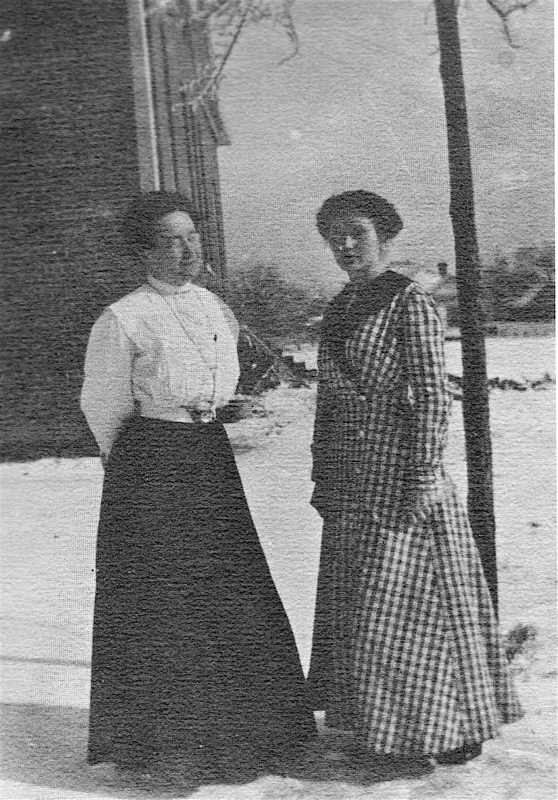Miss Musa & Music
From an office-studio just off the stage in the southwest corner of the
old Hall-Moody building, Miss Musa HALL dominated campus musical
activities from first to last.
Her department antedated the school itself and may be
traced to 1896,
when she began teaching with one pupil. Her class numbered nine
in 1897, 23 in 1898, 27 a year later, and 34 in 1900 when Hall-Moody
opened . Miss Musa then joined the resident faculty - and brought her
pupils with her. By 1904 she and two assistants, and later there were a
number of others who taught piano, and two who taught violin.
Before 1927, Miss Musa’s department had taught more than 700 students,
about 100 of them men and boys.
Music was the core of the Fine Arts and strategic part of life at
Hall-Moody. Quartets, “bands”, and vocal ensembles thrived.
Recitals, operettas, concerts, and chapel music were routine
events. The Hall-Moddy Cheerers, a girls’ chorus, performed from
1921 on. Earlier, in 1915, Miss Musa’s college quartet sang
temperance songs around the county for a gubernatorial candidate.
“Stage work” was required in the music curriculum, and attendance at
concerts was encouraged by the fact that, in the earlier days, at
least, they offered occasions to bend the rules against week-night
dating.
School catalogs from the twenties avowed that the purpose of music at
Hall-Moody was not to make “finished artists”, but to make students
“better in the home life, happier in the business life, more attractive
in the social life, and more useful in the Christian life.” The 1927
yearbook describes the sounds of the “unfinished” artists - the
drum-fire of the piano artillery, the helpless cries of the beginning
voice pupil which came from Miss Musa’s corner, but also lists the
numerous protegees who were themselves teaching music all over West
Tennessee
When
Hall-Moody
closed in 1927, Miss Musa once again moved her base of
operation, this time back into town to a studio on Mechanic Street (Now
University), and continued to carry out her mission. She was, as
the last yearbook said, the Alpha and Omega.

